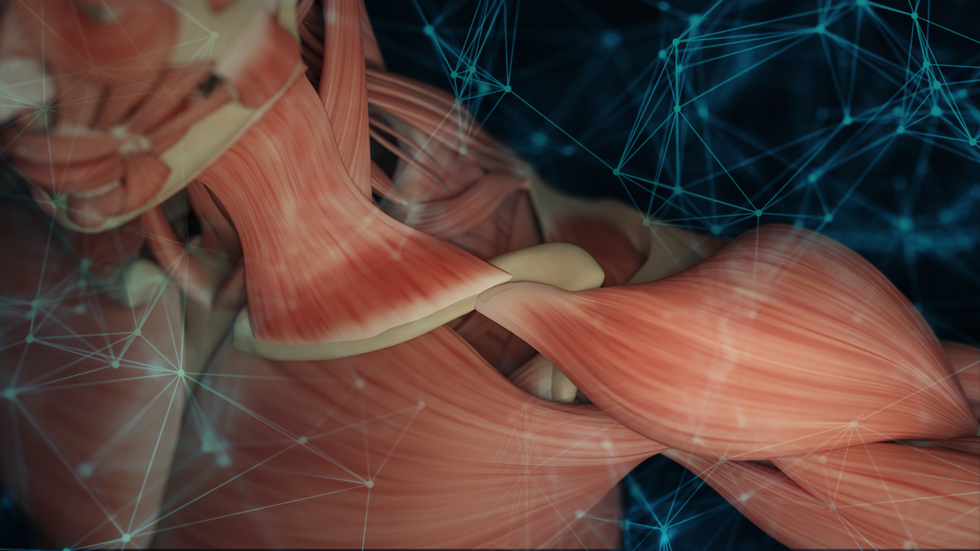
Medicine, Dentistry, and Pharmacy
December 22, 2023
Exercise-Induced Pgc-1α Expression Inhibits Fat Accumulation in Aged Skeletal Muscles
This press release was prepared by Spaulding Rehabilitation and published here with their kind permission.
Myosteatosis, or aging-related fat accumulation in skeletal muscles, is a leading cause of declines in muscle strength and quality of life in elderly adults.
Older adults who are sedentary and develop accumulated fat in the skeletal muscle are often prescribed exercise by their doctors to combat the condition. If scientists were to develop a new therapy, such as medications, to combat myosteatosis, they would need to replicate the mechanism by which exercise might reduce fat accumulation in muscles.
Fibro-adipogenic progenitors (FAPs) are cells within skeletal muscles known to drive fat accumulation, but the exact molecular mechanism behind the process was previously unclear.
A new study led by researchers at the Discovery Center for Musculoskeletal Recovery, Schoen Adams Research Institute at Spaulding Rehabilitation, a member of Mass General Brigham, and Graduate School of Medicine in Nagoya University examined the effect of exercise and immobilization on FAP-driven myosteatosis in aged skeletal muscle. The investigators first analyzed a database of skeletal muscle gene expression patterns in geriatric adults who either regularly exercised or were under bed rest. They identified a gene called Pgc-1α as a key player in FAP regulation, and found that its expression was upregulated by exercise and suppressed by immobilization.
Using computational models, the authors further inferred that the exercise-induced upregulation of Pgc-1α expression led to an increase in mitochondrial fatty acid oxidation. The researchers suggest that this increase, in turn, inhibits FAP fat accumulation in aged skeletal muscles.
“Our findings could help develop drugs that target Pgc-1α or its downstream pathways to promote healthy aging," said corresponding author Hirotaka Iijima, PhD, PT, of Spaulding Rehabilitation. “Therapies that mimic the effects of physical activity could be particularly useful in elderly populations unable to engage in rigorous exercise.”
Read more in the study, published December 15th in The Journal of Physiology.
Expert Contact:
Hirotaka Iijima
Graduate School of Medicine, Nagoya University
Email: iijima[at]met.nagoya-u.ac.jp
Biomedical and Health Informatics Unit (Matsui Lab) website:
http://www.nagoya-ihealthcare.info/
For the original article, visit Spaulding Rehabilitation's press release website: